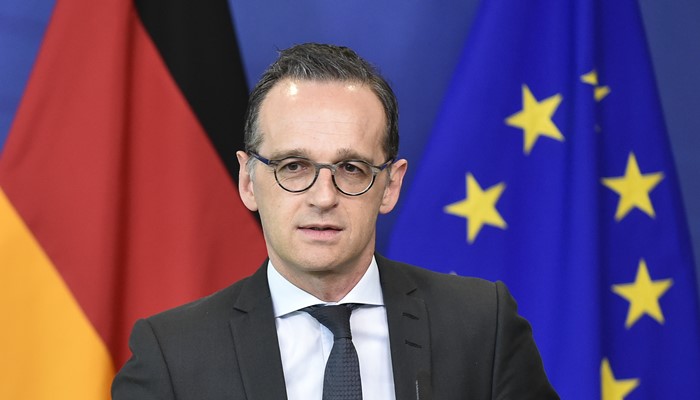Following a statement by Turkish President Recep Tayyip Erdoğan that he would hold an election rally in a European country, Berlin declared that no election campaigns would be allowed in Germany, Deutsche Welle reported.
“Our position on this topic is clear. No election campaigns will be allowed in Germany three months prior to an election in a foreign country,” German Foreign Minister Heiko Maas told reporters in Toronto on Sunday.
Underlining that what had been experienced between Turkey and Germany last year over a referendum campaign crisis was not useful to either side, Maas said he hopes it will not be repeated.
Maas is expected to raise the issue during his first meeting with Turkish Foreign Minister Mevlüt Çavuşoğlu in New York in the sidelines of UN meetings on April 24-25.
Erdoğan in a recent television interview said he plans to meet with Turks in Europe before snap presidential and parliamentary elections on June 24. Erdoğan did not name the country where this was to take place.
Earlier, in March 2017, Erdoğan had accused German Chancellor Angela Merkel of engaging in Nazi practices against Turkish people living in Germany after Turkish ministers were prohibited from campaigning there for a referendum in April on expanding presidential powers.
Austrian Chancellor Sebastian Kurz announced on Friday that his country would not allow Turkish election campaign events, including speeches by Turkish politicians, to be held within its borders.
“As chancellor, I want to put an end to this. Speeches by Turkish politicians that are part of the election campaign are unwanted in Austria, and we will no longer allow them,” Kurz told Oe1 radio.
Kurz also reminded that Erdoğan has been trying to use the Turkish diaspora in Europe for political purposes for years.
On Wednesday, Erdoğan announced that Turkey would hold snap elections on June 24.
Austria was one of the EU countries that refused to host rallies before the 2017 Turkish constitutional referendum.
In March 2017, then-Austrian Chancellor Christian Kern called on the European Union to ban Turkish political campaigns across the bloc.
A crisis erupted between Ankara and The Hague in March 2017 when the latter cancelled the flight clearance for Turkish Foreign Minister Çavuşoğlu’s airplane shortly after he warned that Turkey would impose “harsh sanctions” on the Netherlands if it were to take such a step.
Çavuşoğlu was scheduled to fly to Rotterdam for a campaign rally for a referendum in April 2017.
The crisis escalated when Turkish Minister of Family and Social Policy Fatma Betül Sayan Kaya was expelled from the Netherlands after she insisted on going to the residence of the Turkish consul general in Rotterdam.
Back then, the Turkish government announced a series of political sanctions against the Netherlands, including halting high-level political discussions between the two countries and closing Turkish airspace to Dutch diplomats. Other sanctions barred the Dutch ambassador’s entry back into Turkey, and a Dutch-Turkish friendship group in the Turkish Parliament was dissolved.



